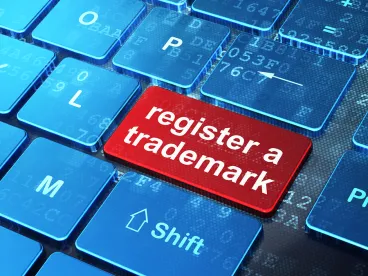The Trademark Modernization Act of 2020 (“TMA”) went into effect on December 18, 2021. Applicants and registrants now have new tools at their disposal to clear the federal register of unused trademarks and the USPTO can move applications through the registration process more efficiently. These regulations impact all aspects of trademark strategy in the U.S., including clearance, prosecution, and enforcement. We’ve highlighted four major updates to trademark practice created by the TMA as well as a number of key takeaways.
1. Ex Parte Reexamination and Expungement Proceedings
The TMA provides two useful ways to challenge applications and registrations on grounds they are not in use in U.S. commerce.
Ex Parte Reexamination Proceedings
Reexamination proceedings apply to registrations for marks that were not in use in commerce in connection with some or all of the registered goods or services as of the relevant date, where the relevant date is defined as:
-
For use-based applications (Section 1(a) of the Lanham (Trademark) Act), the application filing date.
-
For intent-to-use-based applications (Section 1(b)), the later of (i) the filing date of the amendment to allege use or (ii) expiration of the deadline to file a statement of use, including all approved extensions.
This proceeding can be requested by a third-party petitioner or instituted by the Director during the first five years after the mark has registered.
Ex Parte Expungement Proceedings
Expungement proceedings are available to challenge registrations on grounds the mark has never been used in U.S. commerce in connection with some or all of the registered goods and services.
Expungement proceedings can be requested by a third-party petitioner or instituted by the Director three to 10 years after the registration date.
Until December 27, 2023, expungement proceedings can be filed against any registration that is three years old or older, as the USPTO attempts to clear stale registrations (“deadwood”) from the register.
Q&A of Ex Parte Reexamination and Expungement Proceedings
|
Q: What do these proceedings cost? |
|
A: $400 USPTO fee per challenged class. |
|
Q: Must a petitioner disclose the real party in interest? |
|
A: No, although the Director may require that this information be disclosed to prevent abusive filings. |
|
Q: What needs to be included in a petition? |
|
A: An explanation as to why the petitioner has a good faith belief that the registrant does not use the registered mark in connection with the challenged goods and services, and any evidence to support a prima facie case of non-use. |
|
Q: What happens after a petition is filed? |
|
A: If the USPTO determines that the petition contains sufficient evidence of non-use, the Director will issue an Office Action to the registrant and no further participation from the original petitioner will be required. Registrants will have three months (with a 30-day extension available for a fee of $125) to provide evidence of use, information, exhibits, affidavits, or declarations — to rebut the prima facie case. If the registrant’s response fails to establish the required use, the registration will be cancelled in whole or in part depending on the circumstances. |
|
Q: Does a registrant have an opportunity to appeal? |
|
A: Yes, decisions on these proceedings may be challenged via a request for reconsideration or an appeal to the Trademark Trial and Appeal Board (TTAB). |
2. Non-use Ground for Cancellation at the Trademark Trial and Appeal Board
Currently, there are just two bases for filing a cancellation proceeding: (i) abandonment without intent to resume use; and (ii) non-use for at least three consecutive years. Under the TMA, a petition to cancel can be filed after a mark has been registered for at least three years on grounds the mark has never been used in U.S. commerce. A petition to cancel on this new ground may be faster than pursuing expungement or reexamination, particularly if the case is likely to be resolved via default judgement.
Cost: $600 in TTAB fees per challenged class.
3. Codification of the Letter of Protest Procedure
Letters of Protest allow third parties to submit evidence challenging the registrability of a mark during prosecution. The TMA requires the Director to act on Letters of Protest within two months of their filing date with the USPTO. This should expedite the procedure. Under the TMA, Letters of Protest will not prejudice a party’s right to raise any issue or rely on evidence in any other proceeding. The Director's decision on Letter of Protest are final and non-reviewable.
Cost: $50 in USPTO fees.
4. Shorter Response Period for Office Actions (Delayed until December 1, 2022)
As of December 1, 2022, applicants have just three months (as opposed to the current six months) to respond to Office Actions, with an option to request a three-month extension of time for a $125 fee. This change does not apply to applications filed under the Madrid Protocol, which continues to have a six-month response deadline.
Key Takeaways
These changes impact our clients, and our practice, in a number of ways.
-
Review portfolios to determine whether the registered goods and services accurately reflect how marks are used in commerce.
-
Note: Deleting goods and/or services in response to an expungement or reexamination proceeding or during a maintenance period will cost $250 per class, whereas deletions made outside of these proceedings or maintenance period incur no USPTO fee.
-
-
Obtain and save evidence of use for each product and service listed in an application, or maintenance or renewal filing. These specimens will be needed to defend against expungement or reexamination proceedings, where additional specimens/samples of use may be required.
-
Foreign applicants might wish to file new U.S. applications, particularly for those registrations nearing the three-year mark that are vulnerable based on non-use. We expect that registrants under the Madrid Protocol and Paris Convention will find that their registrations are more likely to be the target of expungement proceedings..





 />i
/>i

